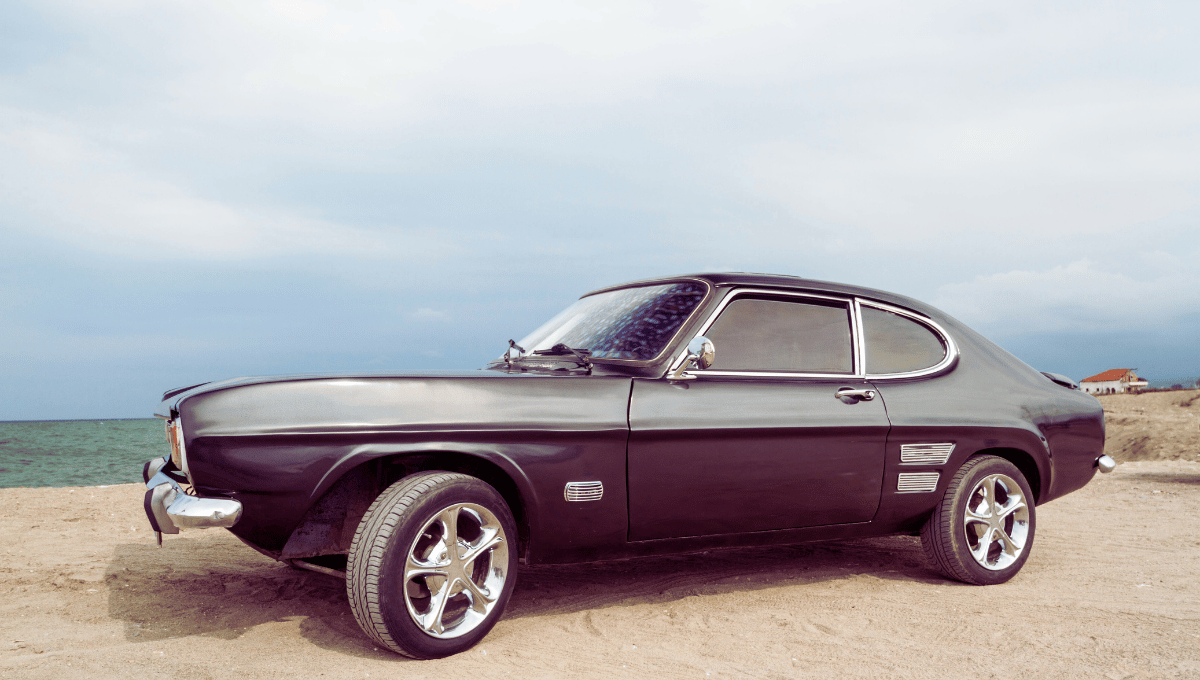When it comes to selecting the best oil for cars with over 200,000 miles, it’s important to take into account the specific needs of a high-mileage engine. Using the right oil can have a substantial impact on the performance and longevity of your vehicle.
Factors such as viscosity grade, additives, and oil type play a key role in maintaining your engine’s health. So, what exactly should you look for in an oil that can cater to the demands of a well-worn engine?
What oil is best for a high mileage car?
When selecting the best oil for a high mileage car, consider opting for a synthetic blend to guarantee peak engine performance and longevity. Synthetic blends combine conventional oil with synthetic oil, offering benefits such as improved viscosity in extreme temperatures, reduced engine wear, and increased protection against deposits and sludge buildup.
These characteristics are essential for older engines with over 200,000 miles, as they help maintain proper lubrication and prevent premature engine wear.

Synthetic blends contain additives that provide better protection against oxidation and thermal breakdown, ensuring the oil remains stable over longer periods. This stability is vital for high mileage cars that may experience prolonged periods between oil changes.
Is 10w40 good for high mileage?
Given the high mileage of your vehicle, evaluating whether 10w40 oil is appropriate becomes crucial for peak engine performance and longevity. 10w40 oil is a commonly used viscosity grade that provides a balanced flow rate in both high and low temperatures.
For high mileage cars, this viscosity can help maintain proper lubrication between engine components that may have experienced more wear over time.
Using 10w40 oil can be beneficial for older engines with over 200,000 miles as it offers a thicker oil film at operating temperatures, reducing metal-to-metal contact and minimizing wear on engine parts. The higher viscosity of 10w40 oil can also help prevent oil leaks in older engines by creating a better seal between worn components.
It’s important to take into account the manufacturer’s recommendations for your specific vehicle as some high mileage cars may require a different viscosity oil. Consulting with a mechanic or referring to your car’s manual can help determine if 10w40 oil is the right choice for your high mileage vehicle.
5 best oil for cars with over 200000 miles
Selecting the appropriate oil for vehicles with over 200,000 miles requires careful consideration of the engine’s specific needs and operating conditions. When your car has surpassed this mileage mark, it’s crucial to choose an oil that caters to the wear and tear the engine has endured over its lifespan.
Opt for a high-mileage synthetic blend or full synthetic oil with a viscosity grade recommended by the manufacturer. These oils are formulated to provide better lubrication, reduce friction, and offer enhanced protection for older engines with higher mileage.
Look for oils that contain additives such as seal conditioners to prevent leaks, detergents to clean deposits, and antioxidants to combat oil breakdown. These additives help maintain engine performance and prolong its life.

Consider oils with a higher viscosity, as older engines may benefit from thicker oil to compensate for worn parts. Regular oil changes with high-quality oil suitable for high-mileage vehicles will help make sure your engine continues to run smoothly even after surpassing 200,000 miles.
What kind of oil should I use for 150,000 miles?
For vehicles with 150,000 miles, it is recommended to use a high-quality synthetic blend oil to guarantee peak engine performance and longevity. Synthetic blend oils provide a balance between the improved performance of full synthetic oils and the affordability of conventional oils, making them an ideal choice for engines with higher mileage.
These oils offer better protection against engine wear, sludge buildup, and thermal breakdown, important factors to keep in mind as your vehicle accumulates more miles.
| Key Benefits of Synthetic Blend Oil | ||
|---|---|---|
| 1. Enhanced engine protection | ||
| 2. Improved fuel efficiency | ||
| 3. Better resistance to extreme temperatures |
Using a synthetic blend oil specifically formulated for high-mileage vehicles can help address common issues associated with older engines, such as oil leaks and reduced performance. By selecting the right oil for your 150,000-mile vehicle, you can ensure its engine remains in top condition for miles to come.
Best High Mileage Engine Oil for Car’s Over 100k Miles
To guarantee top engine performance and longevity for vehicles over 100,000 miles, selecting the best high mileage engine oil is crucial. High mileage engine oils are specifically formulated to cater to the needs of older engines, providing enhanced protection against wear and tear. These oils typically contain additives that help reduce friction, prevent leaks, and maintain proper engine lubrication.
When choosing a high mileage engine oil for your car with over 100,000 miles, look for products with a higher viscosity to compensate for engine wear. Additionally, oils with seal conditioners can help rejuvenate aging engine seals, reducing the risk of leaks. High mileage oils with detergents and dispersants are also beneficial as they help keep the engine clean by preventing sludge buildup.

Popular high mileage engine oil brands like Valvoline High Mileage, Pennzoil High Mileage, and Mobil 1 High Mileage are known for their quality and performance. Make sure to follow the manufacturer’s recommendations and specifications when selecting the best high mileage engine oil for your vehicle with over 100,000 miles.
How Often To Change The Oil (Time And Mileage)
Maintaining peak engine performance and longevity requires following a consistent oil change schedule based on both time and mileage intervals. The general recommendation for most vehicles is to change the oil every 5,000 to 7,500 miles or every six months, whichever comes first.
However, cars with over 200,000 miles on the odometer may benefit from more frequent oil changes to preserve excellent engine health. For high mileage vehicles, it’s advisable to err on the side of caution and change the oil every 3,000 to 5,000 miles.
This frequent oil change interval can help prevent sludge buildup, reduce wear on engine components, and ensure that the engine continues to operate smoothly. Keep in mind that factors such as driving conditions, climate, and the type of oil used can also influence the frequency of oil changes.
Regularly checking your vehicle’s owner’s manual and consulting with a mechanic can help you determine the best oil change schedule for your car with over 200,000 miles.
Which oil is the best for high mileage engines? Is thicker oil better for a high mileage?
Thicker oil isn’t necessarily better for high mileage engines; instead, selecting the appropriate oil viscosity is essential for peak engine performance and longevity.
When choosing the best oil for high mileage engines, consider the following:
- Oil Viscosity: Opt for the oil viscosity recommended by the manufacturer, as it’s designed to provide the best lubrication for your engine’s components.
- High Mileage Oil: High mileage oils contain additives that help condition seals and prevent oil leaks in older engines, making them a suitable choice for vehicles with over 200,000 miles.
- Synthetic Blend Oils: Synthetic blend oils offer a balance between cost and performance, providing enhanced protection compared to conventional oils, which can be beneficial for high mileage engines needing extra care.
Selecting the right oil based on viscosity, high mileage formulation, and oil type can contribute significantly to maintaining your high mileage engine’s efficiency and prolonging its lifespan.
What oil should I use at 200,000 miles?
Considering your vehicle has reached 200,000 miles, it’s essential to select an oil that caters to the specific needs of a high mileage engine to guarantee peak performance and longevity.
At this stage, it’s recommended to switch to a high mileage synthetic blend or full synthetic oil with a higher viscosity. These oils contain additives that can help reduce wear and tear on older engine components, prevent leaks, and provide better protection against heat and friction.
A viscosity range of 5W-30 or 10W-30 is generally suitable for engines with 200,000 miles, as they offer good flow in cold temperatures while maintaining optimal lubrication at higher temperatures. Additionally, look for oils with detergents and dispersants to keep the engine clean from sludge and deposits.
Regular oil changes, approximately every 5,000 to 7,500 miles, are crucial to ensure the engine continues to perform at its best even after surpassing the 200,000-mile mark.
Conclusion
In summary, when it comes to choosing the best oil for cars with over 200,000 miles, opting for a high mileage synthetic blend or full synthetic oil recommended by the manufacturer is essential.
These oils contain additives that help reduce wear and tear, prevent leaks, and provide better heat and friction protection.
Just like a well-oiled machine, using the right oil can greatly extend the life and performance of your high-mileage vehicle.
